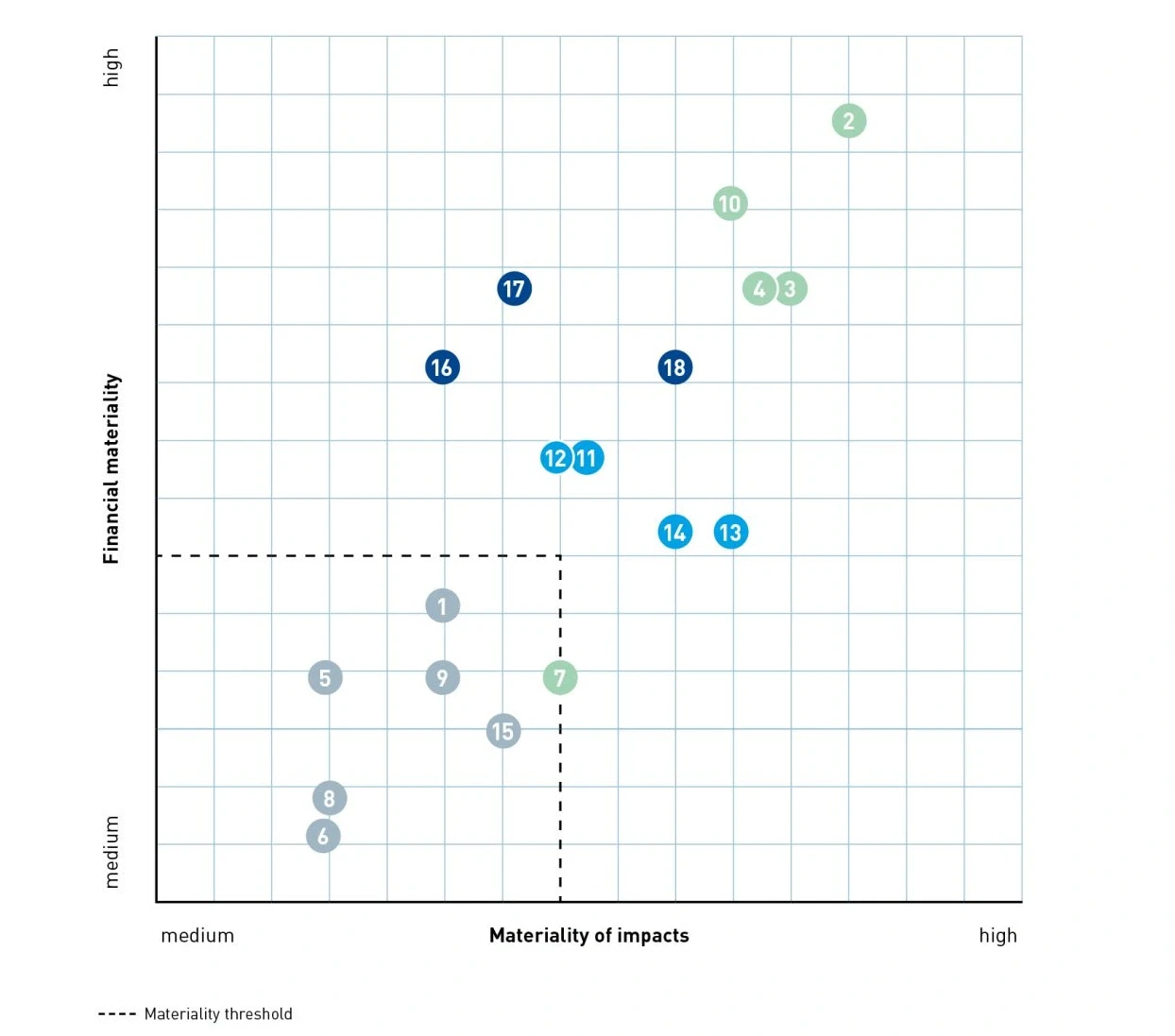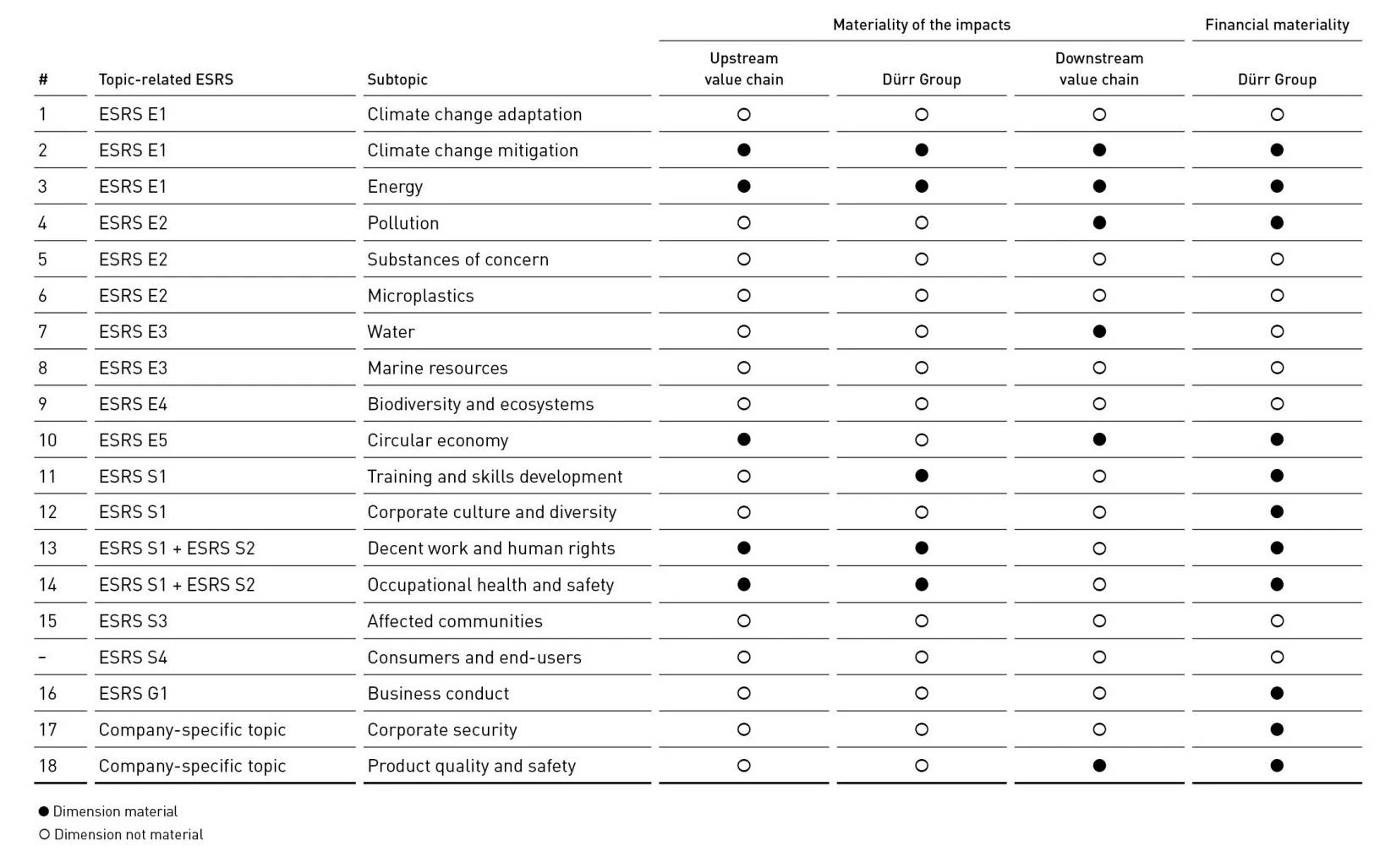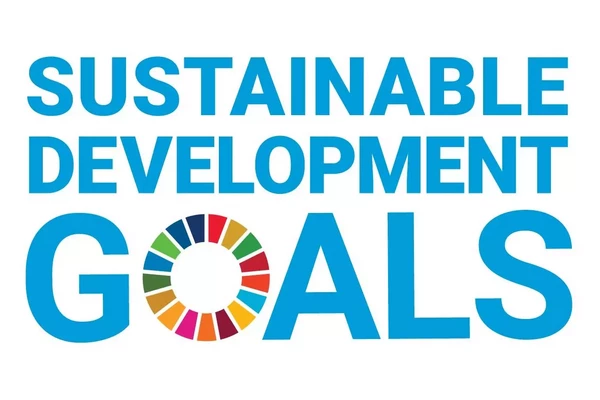Analysis of material topics
In 2024, we carried out a double materiality analysis for the first time in accordance with the requirements of the European Sustainability Reporting Standards (ESRS).
When determining materiality, we considered two dimensions for each sustainability aspect: firstly, the materiality of the impact of our business activities on people and the environment (“inside-out”) and secondly, the financial materiality of the risks and opportunities for our business activities (“outside-in”). When identifying the material sustainability aspects, we considered the entire value chain and included various stakeholders. As a result, we identified 12 material sustainability aspects.
Materiality matrix
Detailed information about the process and methodology of our double materiality analysis can be found in the → Sustainability Statement 2024.






